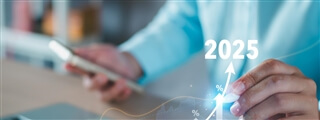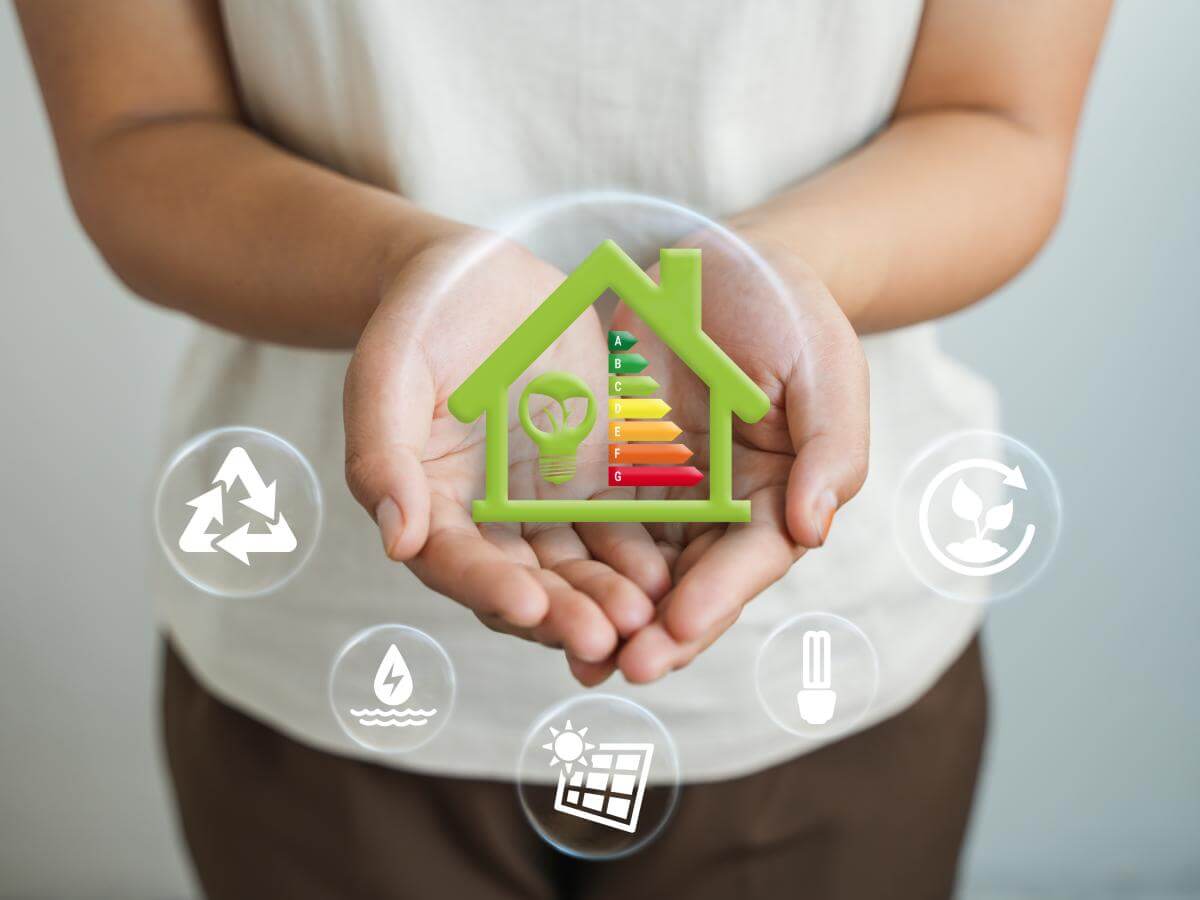Discover the Trends of 2025: A Future of Innovation and Sustainability
As the new year unfolds, the sectors of cleaning, collective catering, hospital logistics, and patient care are poised to redefine themselves through technological innovations and a growing focus on sustainability.
For Markas, as a leader in the multiservice industry, 2025 marks another significant step toward a pragmatic, sustainable, and people-centered future.
For Markas, as a leader in the multiservice industry, 2025 marks another significant step toward a pragmatic, sustainable, and people-centered future.
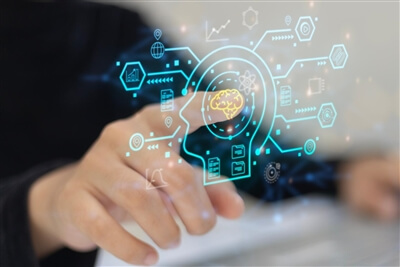
Pragmatism and pilot projects
Great innovations often follow a path of highs and lows, as illustrated by the Gartner Hype Cycle.
This model explains how emerging technologies, initially met with high enthusiasm and expectations, only achieve full success when thoroughly understood and practically applied. Over recent years, emerging technologies like collaborative robots (cobots) and artificial intelligence systems have generated significant buzz.
Looking ahead to 2025, adopting a more pragmatic approach will be crucial, focusing on applications and solutions that can fully harness the potential of these technologies.
Markas is at the forefront of this transition, investing in pilot projects and practical tests to verify the effectiveness of technological solutions. The goal is to gradually integrate innovations into existing processes, ensuring tangible results and optimizing workflows.
Technologies like AI and robotics promise to reduce errors, improve productivity, and streamline operations without overlooking the central role of people. Their skills ensure thoughtful planning and practical application of new technologies.
Great innovations often follow a path of highs and lows, as illustrated by the Gartner Hype Cycle.
This model explains how emerging technologies, initially met with high enthusiasm and expectations, only achieve full success when thoroughly understood and practically applied. Over recent years, emerging technologies like collaborative robots (cobots) and artificial intelligence systems have generated significant buzz.
Looking ahead to 2025, adopting a more pragmatic approach will be crucial, focusing on applications and solutions that can fully harness the potential of these technologies.
Markas is at the forefront of this transition, investing in pilot projects and practical tests to verify the effectiveness of technological solutions. The goal is to gradually integrate innovations into existing processes, ensuring tangible results and optimizing workflows.
Technologies like AI and robotics promise to reduce errors, improve productivity, and streamline operations without overlooking the central role of people. Their skills ensure thoughtful planning and practical application of new technologies.
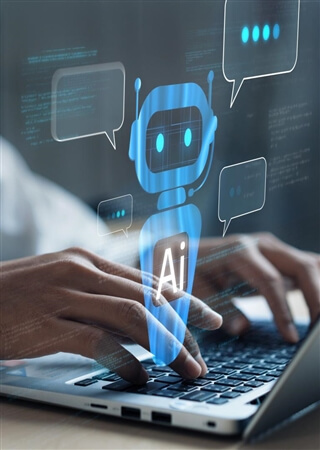
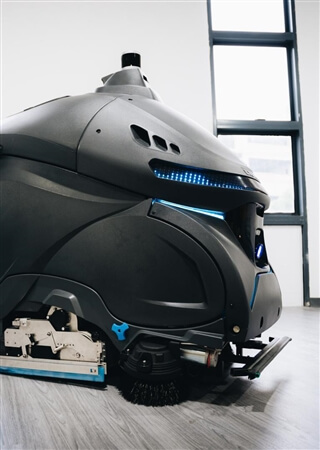
Robotics, Artificial Intelligence, and the central role of People
Technological innovation must always center around people. At Markas, robotics and artificial intelligence are not seen as substitutes but as tools to support the workforce. Generative AI systems like ChatGPT can act as virtual assistants, alleviating employees’ workloads and enhancing operational efficiency.
The company fosters a vision where innovation serves people: this approach not only enhances human skills but also strengthens the quality of services offered, solidifying Markas as a benchmark in the industry.
Digital for sustainability
Sustainability is a cornerstone for Markas. For this reason, the company leverages new digital technologies to promote greater environmental efficiency and reduce waste. In line with circular economy principles, Markas implements production models based on reuse, ensuring a more sustainable resource management approach.
For example, the food production facility in Vigasio employs heat recovery systems and energy management technologies to minimize its environmental impact without compromising productivity.
Technological innovation must always center around people. At Markas, robotics and artificial intelligence are not seen as substitutes but as tools to support the workforce. Generative AI systems like ChatGPT can act as virtual assistants, alleviating employees’ workloads and enhancing operational efficiency.
The company fosters a vision where innovation serves people: this approach not only enhances human skills but also strengthens the quality of services offered, solidifying Markas as a benchmark in the industry.
Digital for sustainability
Sustainability is a cornerstone for Markas. For this reason, the company leverages new digital technologies to promote greater environmental efficiency and reduce waste. In line with circular economy principles, Markas implements production models based on reuse, ensuring a more sustainable resource management approach.
For example, the food production facility in Vigasio employs heat recovery systems and energy management technologies to minimize its environmental impact without compromising productivity.
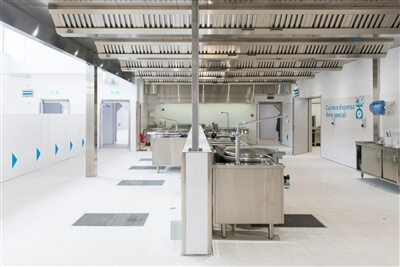
A future integrating technology, sustainability, and people
For Markas, 2025 will be a year of technological maturity and responsible innovation.
Pragmatism, projects, and a sustainable vision will continue to be the pillars of the company’s strategy. The gradual adoption of advanced technologies, combined with a focus on valuing people, allows the company to maintain a balance between progress and employee well-being.
By doing so, Markas reaffirms its commitment to building a better future for its employees, clients, and the environment. This forward-looking philosophy not only redefines essential services but also reinforces the company’s role as a reference point in the multiservice sector.
For Markas, 2025 will be a year of technological maturity and responsible innovation.
Pragmatism, projects, and a sustainable vision will continue to be the pillars of the company’s strategy. The gradual adoption of advanced technologies, combined with a focus on valuing people, allows the company to maintain a balance between progress and employee well-being.
By doing so, Markas reaffirms its commitment to building a better future for its employees, clients, and the environment. This forward-looking philosophy not only redefines essential services but also reinforces the company’s role as a reference point in the multiservice sector.
ARTICLES YOU MAY LIKE
